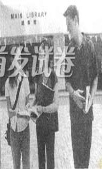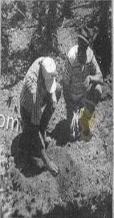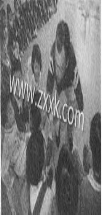题目内容
阅读下列应用文及相关信息,并按照要求匹配信息,请在答题卡上将对应题号的相应选项字母涂黑。
首先请阅读某大学提供给学生的项目信息:
A. | B. | ||
In-Company Experience Challenging posts in industry for gap year students. Use your academic and interpersonal skills to improve a product or service provided by a top name company-and get paid for it! |
| Camp World Work in camps for young people in one or more of the five continents. You help organize sports activities and other outdoor pursuits and you could end up with a qualification as an instructor. | |
| |||
C. | D. | ||
Community Care Volunteer work at home and abroad with the physically and mentally handicapped, the homeless, the elderly and orphans. You’ll need to be committed, patient and sensitive to others. |
| Academic Study Year Spend a whole year studying at a foreign university in Europe, the USA or even further afield, without the pressure of exams. Accommodation with local families. Grants available. |
|
E. | F. | ||
Conservation International Conservation and research work with teams of volunteers on nature reserves in South America and Africa. Projects include monitoring wildlife, path building and water and soil conservation. |
| Language Teachers Abroad Teach your own language or English in almost any country in the world. Class sizes vary from one to one hundred and resources can be basic, but your students will welcome you with open arms. |
|
1.I grow up in a very big family. My parents have raised twelve kids and I am their first-born. It has been my duty to help my mom take care of my brothers and sisters. To handle them, often I have to organize an outdoor activity, like a softball game. I must say that I have the potential to work as an instructor.
2.Last year, my dog got crippled after losing the fight to my neighbor’s bulldog. I rinsed its wound with some lotion and tied its leg with a stick. I had him take medicine every day for a full month. Finally he recovered. I think I can help the elderly and the disabled as well. I feel so good when I can offer help.
3.I am a film buff. A big fan of Antonio Banderas. He is so wild and charming. Because of him, I fell in love with Spain. The Latin dance and the bullfight are really exciting. Oh, if only I could stay in Spain as an exchange student! I would be learning Spanish so well that I can watch a Spanish film with the dubbing.
4. I had the experience of working as a social worker in Switzerland last summer. I love the country and its people. There are great mountains for climbers and the local people are so nice to strangers. I helped the kids with their English. My teaching skills improved greatly during my stay. Now I’m well prepared to work as a language instructor.
5.I spent my gap year traveling all over Africa last year. It was definitely an eye- opening experience. The exotic clothes and tribal dances of the people really fascinated me. But I was most amazed by the wildlife there. I really took great pleasure in watching those animals hunting their prey. You know, I specialize in zoology, and I’m a good observer.
1.B
2.C
3.D
4.F
5.E
【解析】
试题分析:
1..根据介绍学生信息可知该学生喜欢孩子并且有照顾弟弟、妹妹的经验,并且还参加过户外活动,有领导才能。选项B介绍的是领导年轻人做一些体育活动或其他的户外活动,最后给一个指导教师证书。这正符合该学生的要求,故选B。
2.. 根据介绍学生信息可知该学生曾经救助过他的受伤的小狗,给它清洗伤口,给它敷药最后小狗痊愈,所以作者认为他能够为残疾人或老人服务,他有耐心和信心。选项C叙述的是社区的志愿者服务的工作,为社区的老人、残疾人、流浪者或孤儿的服务,需要的是志愿者的耐心和细心,这正符合该学生的要求,故选C。
3.. 根据介绍学生信息可知该学生是一个Antonio Banderas的粉丝,因为喜欢这个演员,他爱上了西班牙,喜欢西班牙的舞蹈和斗牛,他想作为一名交换生去西班牙,在那里学习西班牙语、看西班牙电影。选项D叙述的学术学习交流一年,可以在美国、欧洲、或更远的地方。没有考试的压力,可以寄宿到当地人的家里,这正符合该学生的要求,故选D。
4.. 根据介绍学生信息可知该学生有一个在瑞士当社会服务人员的经历,在那里他提高了自己的英语教学水平,现在愿意去做一名语言老师。选项F叙述的是去国外当一名语言老师,可以教母语或英语。这正符合该学生的要求,故选F。
5.. 根据介绍学生信息可知该学生曾经有去非洲旅行的经历,在那里他观察了野生动物寻找猎物的过程,他对动物有所研究,是一个好的观察者。选项E叙述的是去非洲或南美洲的一次自然保护之旅,检测动物、水土保护情况。这正符合该学生的要求,故选E。
考点:信息匹配。

 金牌教辅培优优选卷期末冲刺100分系列答案
金牌教辅培优优选卷期末冲刺100分系列答案




